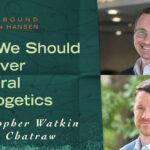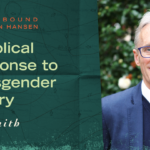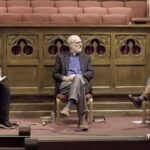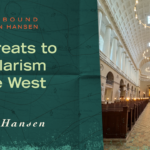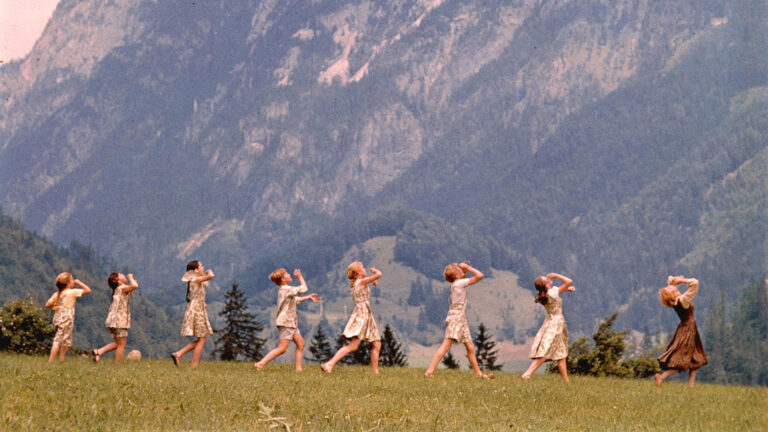We know the Reformation recovered biblical theology, with the five solas. We know it contributed to a divided Western church. We might even know how the revival sparked by Luther’s dramatic protest in 1517 eventually led to new ways of viewing work, government, economics, and more. We’ll study and celebrate those effects when we gather April 3 to 5 in Indianapolis for The Gospel Coalition 2017 National Conference, No Other Gospel: Reformation 500 and Beyond.
But did you know the Reformation also changed the way we sing? Did you know that without the Reformation, we might not even sing at all in the church today?
To learn more about this Reformation legacy and how we can recover more of it for congregational singing today, I looked to help from award-winning songwriter and musician Keith Getty. This fall, Getty is gathering together theologians, pastors, and musicians who seek to strengthen churches through a deeper, more dynamic view of theology, artistry, and mission in congregational worship. Other speakers for this landmark event include D. A. Carson, Alistair Begg, David Platt, Joni Eareckson Tada, and Paul Tripp, joined by Laura Story, Shai Linne, Stuart Townend, and a host of musicians. For more details on the Getty Music Worship Conference—Sing!, a conference for pastors and musicians, September 18 to 20 in Nashville, Tennessee—visit GettyMusicWorshipConference.
Our interview explores how the Reformers would assess our singing today, how our churches may need to change, and more.
What was the biggest change the Reformation effected in congregational worship, particularly with music?
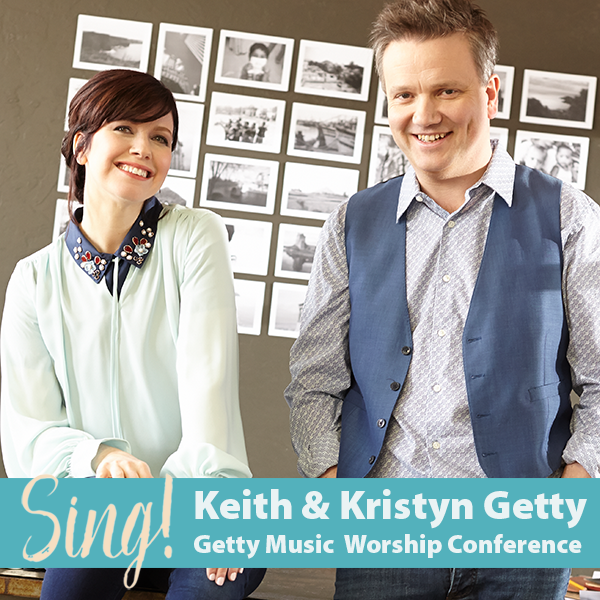 Well, pretty much everything changed, seeing as congregational singing had been banned by the Roman Catholic Church. Indeed, Jan Hus was martyred in Konstanz two centuries earlier on the basis of three heresies—one of which was encouraging congregational singing.
Well, pretty much everything changed, seeing as congregational singing had been banned by the Roman Catholic Church. Indeed, Jan Hus was martyred in Konstanz two centuries earlier on the basis of three heresies—one of which was encouraging congregational singing.
Martin Luther re-established congregational singing to the center of church life, which gradually took root over the next century. It was one of the ways he made the church service an active experience, as opposed to the previously passive experience in which the congregation had no voice. He also collated a collection of chorales with the basic conviction that people should rehearse the gospel in the songs they sang to one another.
If the Reformers could yell, “Stop!” at one thing we do with music in the church today, what would it be?
There are probably a number, sadly, but from the strictly musical perspective, it’d be that we should begin with the holy act of God’s people singing as the center of the musical experience, and then work out from there.
Whether you have a more Lutheran view of singing (high view of the role of instrumental music in the service and with the singing) or more Calvin/Knox/Edwards (preferred unaccompanied singing or absolute simplicity of accompaniment), the Reformers all had a high view of singing. Calvin and Edwards had some of the finest musicians in their churches teach congregational part singing, because they realized how encouraging this was for personal, family, and church life. Many of the towns in New England influenced by the Reformation would teach singing on a Wednesday night in order to teach parts and to prepare for Sunday.
I would dare to say less than 5 percent of our Reformed churches are taking congregational singing as seriously as any of these guys did. I’ve heard Ligon Duncan say, “There is no part of the worship life more in need of reformation than congregational singing.”
You’ve told me that the Reformation prioritized singing and preaching the Word, but that 80 percent of our focus as modern Protestants has been on preaching. What are we missing in this lack of attention to singing the Word?
Luther’s context was similar to ours in some ways—a generation of somewhat-new believers not used to singing. We live in a world today with more Christians than ever before, most of whom have little theological understanding of why we sing, or experience in how to do it. Luther taught why we sing. He also curated songs that gave people a deep, rich understanding of the God of the Bible and the gospel he offers. We arguably live in the first generation in Judeo-Christian history where most people have no curation of the songs they sing (psalms, liturgy, hymn books, or localized sources), so people are finding their songs from corporate commercial music companies. Luther also worked with musicians to create and lead passionate singing.
What one practice could a church adopt today that would build on the Reformation’s worship legacy?
The biggest challenge is for pastors to actually take the lead. Period.
To pass the responsibility or blame someone else is as nonsensical as me blaming bad behavior of my children on their ballet teacher. The churches with the great congregational singing are the churches with the pastor who really, really cares. The music can be contemporary, traditional, black gospel, unaccompanied psalm singing, with or without choirs, leaders, sound systems or hymn books. It doesn’t matter.
Luther prioritized curating the hymns his churches would sing, explaining why they should sing, and then setting to work on teaching and encouraging his people. That’s the single thing that needs to change most.
After that we’re encouraging churches for the Reformation year to ask each week only what the singing is like in their church and to work backward from there as to how to build the musical worship in their church.
Related:
- Why Congregational Singing Matters Today More than Ever (Keith Getty)
Download your free Christmas playlist by TGC editor Brett McCracken!
 It’s that time of year, when the world falls in love—with Christmas music! If you’re ready to immerse yourself in the sounds of the season, we’ve got a brand-new playlist for you. The Gospel Coalition’s free 2025 Christmas playlist is full of joyful, festive, and nostalgic songs to help you celebrate the sweetness of this sacred season.
It’s that time of year, when the world falls in love—with Christmas music! If you’re ready to immerse yourself in the sounds of the season, we’ve got a brand-new playlist for you. The Gospel Coalition’s free 2025 Christmas playlist is full of joyful, festive, and nostalgic songs to help you celebrate the sweetness of this sacred season.
The 75 songs on this playlist are all recordings from at least 20 years ago—most of them from further back in the 1950s and 1960s. Each song has been thoughtfully selected by TGC Arts & Culture Editor Brett McCracken to cultivate a fun but meaningful mix of vintage Christmas vibes.
To start listening to this free resource, simply click below to receive your link to the private playlist on Spotify or Apple Music.








